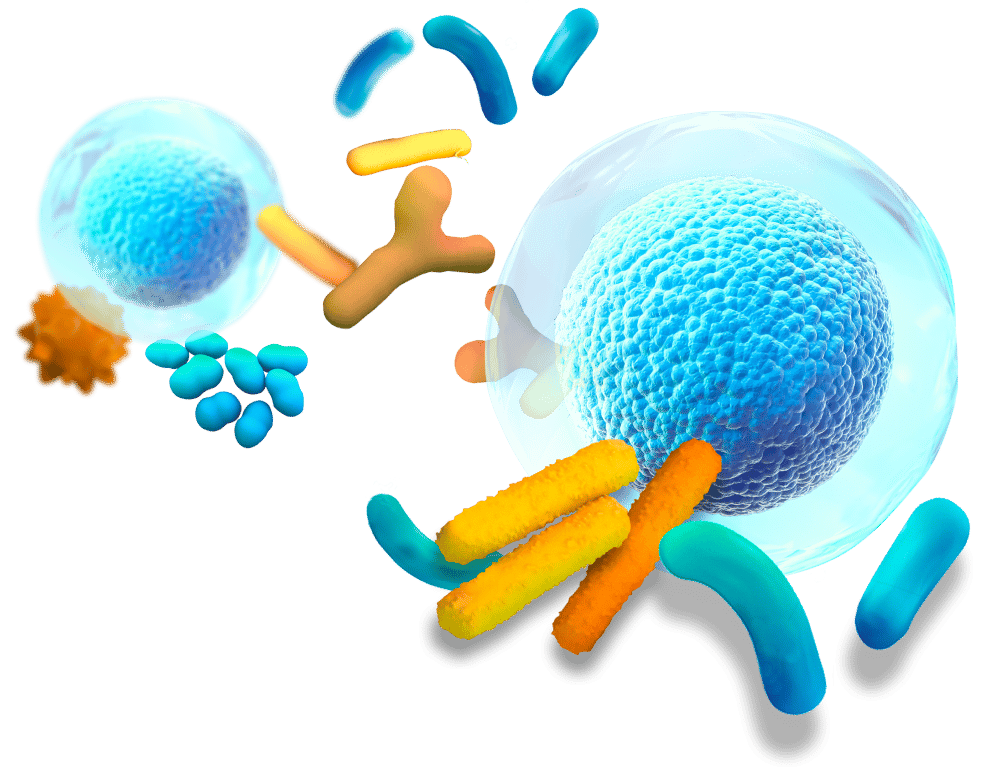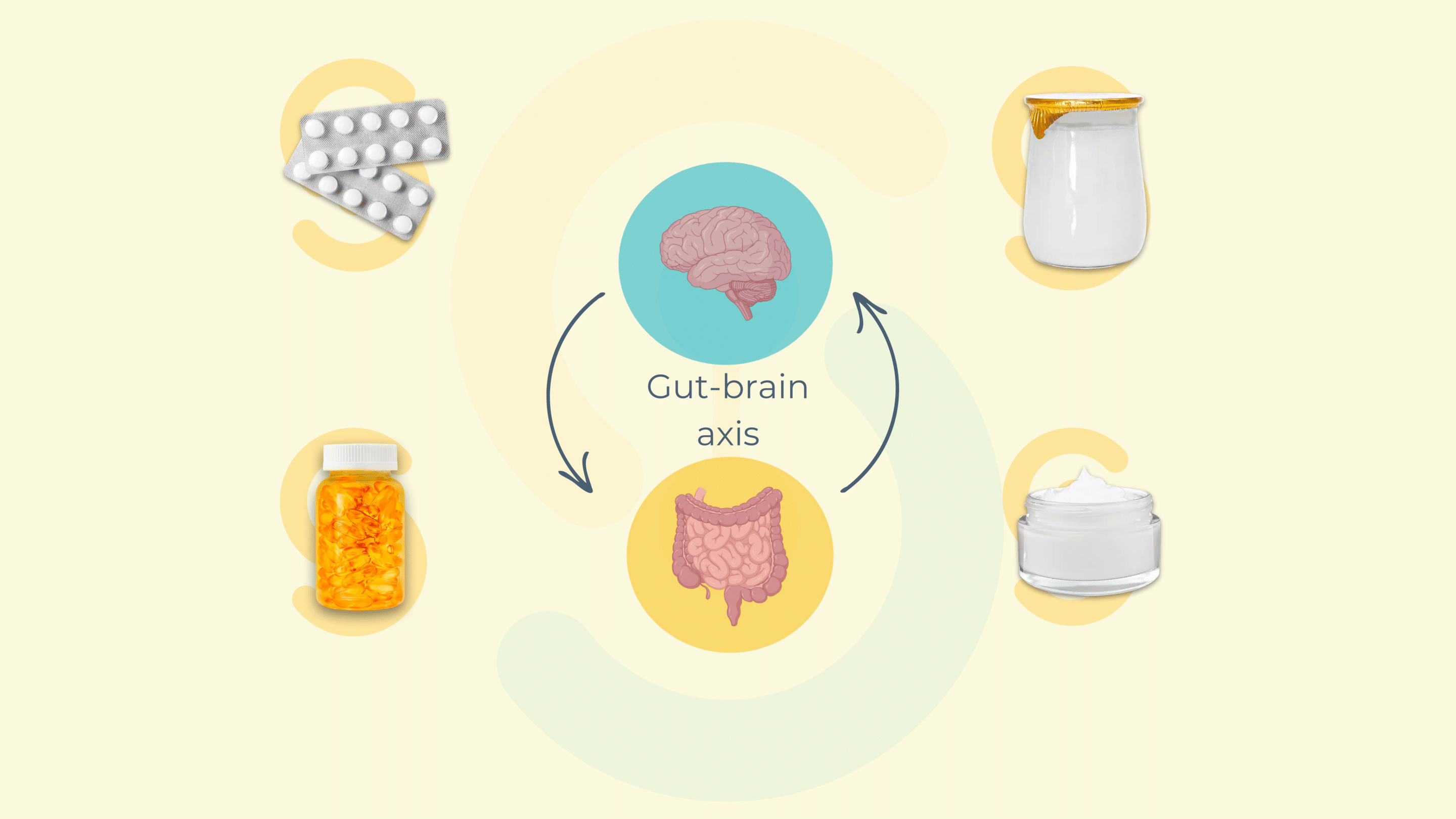Gut-Brain Axis: A growing research focus
The gut-brain axis is emerging as one of the most exciting and complex areas of medical research. This bidirectional communication network between the gastrointestinal tract and the brain plays a crucial role in both physical and mental health. Studies exploring the gut-brain axis communication have revealed its involvement in pathologies such as Alzheimer’s, Parkinson’s, diabetes, aging, stress, and visceral pain.
Recent gut-brain axis reviews highlight the increasing number of pharmacological approaches being developed to target these disorders. Researchers are investigating localized gut treatments that can influence brain activity while avoiding the side effects of conventional systemic drugs. By targeting the gut “locally,” it may become possible to treat neurological and metabolic disorders more effectively and with fewer complications. As our understanding of the gut-brain axis deepens, future pharmaceuticals are expected to focus on innovative treatments rooted in gut health.
Pharmaceuticals: targeting the gut to influence brain health
The gut-brain axis is now considered a central pathway for developing pharmaceutical interventions for a range of conditions. Traditional medications often struggle to penetrate the blood-brain barrier or cause significant side effects when acting on the central nervous system.
Targeting the gut locally, however, offers a novel approach. Researchers are exploring how gut-derived bioactive compounds can influence neuronal pathways within the gut-brain axis communication to alleviate brain-related disorders.
Tomorrow’s pharmaceuticals will likely incorporate treatments that specifically modulate gut-brain axis pathways, offering a safer and more efficient therapeutic strategy. In-depth studies are still needed to understand the specific mechanisms at play, but the potential of gut-targeted drugs remains highly promising.
Nutraceuticals: modulating the gut-brain axis with prebiotics and probiotics
Nutraceuticals such as probiotics, prebiotics, and bioactive ingredients are gaining attention for their role in modulating the gut-brain axis. While pharmacological treatments are critical for addressing existing pathologies, nutraceuticals present a preventive approach that could reduce the incidence and financial burden of chronic diseases.
Recent research has demonstrated how oligofructose, a prebiotic, can significantly improve diabetic conditions by targeting the enteric nervous system neurons responsible for gut motility. The modulation of gut microbiota through prebiotic supplementation led to the release of bioactive lipids and peptides that positively influenced glycemic control via the ENS.
This discovery emphasizes the importance of nutraceuticals in preventive medicine. By modulating the gut-brain axis communication, prebiotics and probiotics not only support gut health but also exert systemic metabolic benefits.
Food and Feed: supporting gut-brain axis communication through diet
Functional foods play a key role in maintaining a healthy gut-brain axis. By supporting gut health through diet, individuals can improve nutrient absorption, boost intestinal immunity, and regulate gut motility. The enteric nervous system, often referred to as the “second brain,” serves as the key interface for these effects. Research indicates that functional foods can influence enteric nervous system neurons, helping regulate intestinal smooth muscle activity and ensuring a balanced transit system, which is vital for both digestive health and overall well-being.
Stress-related disorders like constipation and diarrhea are common examples of disrupted gut-brain axis communication. Functional foods enriched with specific bioactive compounds offer natural and effective ways to prevent and manage these conditions. Notably, our research demonstrated how glucose and breast milk components can directly influence the enteric nervous system function and intestinal smooth muscle activity. These findings highlight the intricate relationship between diet, the ENS, and overall gut health, reinforcing the role of functional foods as a central pillar in supporting the gut-brain axis.
Dermocosmetics: the gut-skin axis and enteric nervous system
The connection between gut health, the enteric nervous system, and skin health has gained increasing scientific interest. Emerging evidence suggests a bidirectional relationship between the gut microbiota, enteric nervous system neurons, and skin function. Oxidative stress and inflammation in the gut can lead to disruptions in enteric nervous system function, resulting in dysbiosis—an imbalance in gut microbiota. This dysbiosis can trigger changes in bacterial metabolites and signaling molecules, which in turn may influence skin health.
For example, aging affects not only our skin but also the enteric nervous system and gut microbiota. These interconnected processes suggest that addressing gut health through targeted approaches could have downstream benefits for skin conditions such as acne, dermatitis, and age-related damage. As dermocosmetic research continues to evolve, treatments focusing on the gut-brain axis communication are likely to play a central role in future innovations.
The future of gut-brain axis research
The gut-brain axis is no longer a peripheral research topic—it stands at the intersection of pharmaceuticals, nutraceuticals, functional foods, and dermocosmetics. With mounting evidence demonstrating the influence of enteric nervous system neurons on systemic health, the development of therapies targeting this axis is set to transform multiple industries. From prebiotics modulating ENS activity to localized gut-targeted pharmaceuticals reducing brain-related symptoms, the possibilities are both exciting and vast.
While the field is still evolving, the need for deeper exploration of gut-brain axis communication mechanisms remains clear. Researchers and industry stakeholders must collaborate to accelerate innovation and translate scientific insights into practical solutions for patients and consumers alike.
Partner with Enterosys for cutting-edge gut-brain axis research
At Enterosys, we specialize in preclinical research focused on the gut-brain axis, leveraging our expertise to uncover innovative therapeutic pathways. From pharmaceutical solutions to nutraceutical strategies and functional food interventions, we provide robust insights into enteric nervous system disorders and their broader implications.
Explore the future of gut-brain axis research with Enterosys. Contact-us today !

